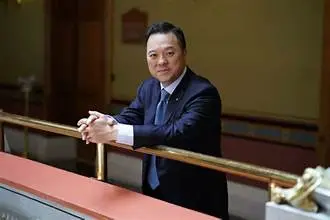Call it the trifecta from hell.
In short order for The Barnum Museum in Bridgeport beginning June 24, 2010, the red stone and terra cotta landmark was the victim of a tornado that homed in like the museum had a bull”™s-eye on it. That was followed by hurricane Irene and Superstorm Sandy.
Piling on the injuries, the museum”™s 20,000 artifacts ””many of them paper ”” were in danger of the same fate as Tom Thumb”™s carriage, which is now restored, but which was ravaged to the point of destruction by the uncontrolled humidity that accompanied the more explosive weather damage.
To date, $3.8 million has been spent salvaging artifacts and shoring up the building.
It would seem the sort of karmic pile-up to send a responsible person searching for cover or even for the egress, P.T. Barnum”™s famous exit sign.
Not so in the case of Alice Ferreira, who was named chairwoman of The Barnum Museum board of directors in January. She began volunteering with the museum”™s planning committee in 1996 and has been a board member since 2009. She is a vice president for corporate communications for United Health Group, a national health insurer based in Minnesota and with offices in all 50 states.
“I was always aware of the museum.” said Ferreira, a Bridgeport native. “How can you not be?”
She said it was probably a school trip that introduced her to the museum, but her mother, too, used to take her to the neighborhood on Saturdays ”” to F.W. Woolworth Co. ”” and she enjoyed the museum”™s elaborately carved exterior even if she did not always venture inside.
“Bridgeport has lots of jewels,” she said. “But the museum is a jewel that has magnetism to it. It”™s a very exciting place.”
It is also the setting where the 15-member board meets. As Ferreira said, “It is important to talk in the physical space and it is an honor to meet here. It allows people to step away from whatever outside lives they have.”
“It”™s immersive,” said Kathleen Maher, the museum”™s executive director, who led a recent tour of progress at the museum.
Ferreira cited support from the current administration of Mayor Joseph Ganim as well as the local business community”™s history of municipal involvement as critical to the mission. She defined the board”™s modus operandi as “bringing energy and smarts to the table on behalf of the museum.” Her chairwomanship is one year.
“Any time you make a conscious decision to carve out a time in your daily life and create time for something like this, we are going to make sure that board member has a great experience, as well,” she said. “And it”™s going well.”
To Ferreira, the museum is as big as Barnum himself. “As someone born and raised here, if you had told me I would have this honor I might not have believed it,” she said. “This museum epitomizes everything Bridgeport stands for: that everything is possible, that nothing is beyond your grasp.”
The museum is mostly closed now and has been since the tornado. It is open, however, around the back of the building in its space that is part of the People”™s United Bank headquarters. The space houses classic Barnum artifacts like Tom Thumb”™s carriages and a semi-honest-to-goodness centaur. Admission is free. On a recent cold afternoon, about 15 young students showed up en masse. They could not in a gazillion years find themselves in cooler company, surrounded by fascinating objects, including a carriage in the shape of a walnut built to hold Commodore Nutt, a 29-inch man who toured for Barnum.
About 5,000 people visited the limited museum exhibit last year, down about 20,000 visitors per year from before the storms.
Maher said $3.8 million has been spent on stabilizing the structure. That work is mostly out of the public eye, but was evident on a hardhat tour. Maher, in a green hardhat, pointed to new steel columns that are bearing the weight of the dome and said with genuine affection, “I love these columns.” The storms”™ damage revealed, among other deficiencies, that a previous shoring effort with columns was insufficient to bear the dome”™s weight. On the second floor, another woe:Â false walls were creating interior environmental troubles.
“We are at a crucial point in our history, ready to re-emerge as a center for creativity and inspiration and a major cultural destination,” Maher said. “We are embarking on a re-imagining of the museum and there is no better time to be at the forefront of an organization that will have a lasting impact on everyone in our community, our country and the world.”
Maher said the next phase will cost $4 million. It will involve architects and the implementation of a Disneyesque ”” or Barnumesque ”” vision of wonder. Indeed, the Disney magic is part of the back story since the museum contracted a California firm, BRC Imagination Arts, which is staffed with former Disney employees.
Maher produced the outsized book BRC has made and said, “This is the shining star that we”™re reaching for.”
Ferreira had earlier said a never-ending challenge for the museum was to plan a century into the future. Maher picked up the thought, opening the book and saying, “This is that plan for 100 years.”
The blueprint includes seven themes: illumination through curiosity; success through innovation; prosperity through personal discipline; willingness to take risks; rebound time and again from failure; wealth through service; and the importance of giving back to the community. Maher was one of 23 persons on the committee that helped shape the book; there is a copy in the museum and another in the mayor”™s office.
An app will be part of the future museum experience, allowing for personalized tours. An example is foreseen as an immersive Jenny Lind experience. Lind ”” the Swedish Nightingale ”” was the most famous voice of the 19th century and Barnum brought her to America for a series of concerts.
“The vision is to take technology and make it invisible,” Maher said. “You get information and knowledge, but you”™re connecting with it beyond a didactic experience.”
Another plan includes creating a behind-the-scenes exhibit of Barnum”™s 1842 American Museum on Broadway in downtown Manhattan ”” home to the famous “See the Egress” sign ”” including crates filled with the wonders of the natural, manmade and who-the-heck-knows worlds.
“I give Bridgeport a lot of credit,” Maher said. “Bridgeport is a passionate community. The people here truly love and celebrate their treasures.”
























